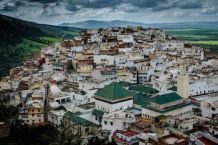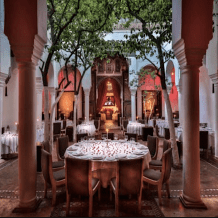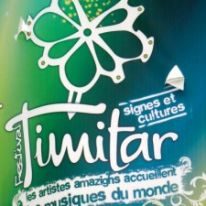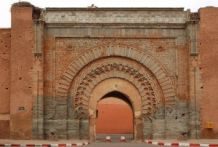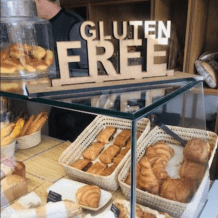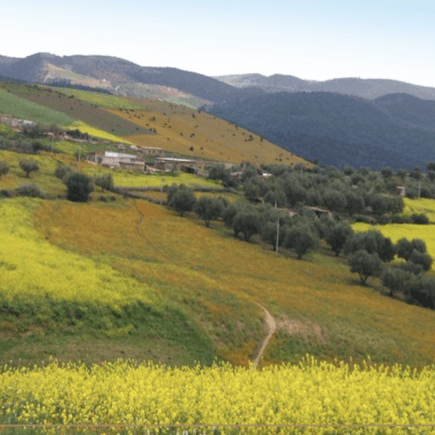
Moroccan Wines and Vineyards
Despite being a predominantly Muslim country, Morocco is far from “dry”. There are many locally produced Moroccan wines to try and even vineyards and wineries to visit during your trip. Moroccan wine is relatively unknown outside of Morocco and so wine enthusiasts are in for a treat, and even some pleasant surprises! Our curated overview of Moroccan wines and vineyards covers the history, wine types, geographical locations and we suggest a few wines to try, either at the vineyard or in a restaurant.
What is the history of Moroccan Wines?
There is some evidence to suggest that Phoenician settlers, from the area of modern-day Lebanon, first introduced vines to the region we now know as Morocco. It was during the period of the French Protectorate (1912-1956), however, which saw a massive expansion of viticulture in Morocco. French expertise, grape varieties, and investment flowed across the Mediterranean and found geography and climate perfectly suited to the cultivation of wine. Although the production volumes were never as great as in neighboring Algeria (which has a larger surface area and was colonized for longer), by independence in 1956, 55,000 hectares (140,000 acres) of Morocco were dedicated to the production of wine. Although production slumped in the intervening period, by early 2000, the cultivated area was almost back to the post-independence levels and includes several more specialist, boutique wineries. This is reflected in a much lower hectolitre production level compared to the post-independence years, despite a similar cultivated acreage.
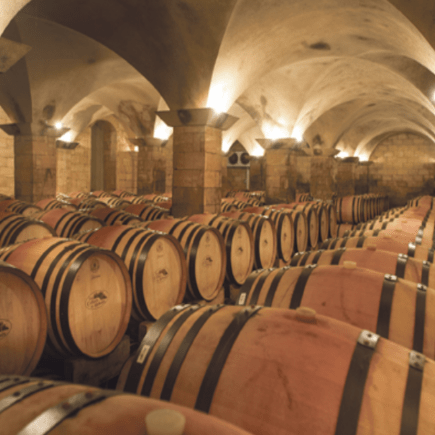
More about Moroccan wine production
Around 75% of Moroccan wine production uses red grapes. Although much of Morocco’s wine expertise has its origins in France, unsurprisingly, the grape varieties which thrive in North Africa are those which also do well across the Mediterranean in the Iberian Peninsula. These include Carignan, Cinsaut, Alicante, and Grenache. More recently, popular varieties such as Cabernet Sauvignon, Merlot and Syrah have been cultivated in Morocco and makeup around 15% of the market.
White wines only makeup around 3% of Morocco’s wine production and are not typically critically acclaimed. For European and North American drinkers used to the complexity of French wines or the consistency of new world whites, Moroccan white wines can be disappointing.
Where Morocco excels, however, is in its production of vin gris, literally “grey wine.” Between a white and a rosé, a gris has a pale, almost peach-colored tint and a light flavor. Chilled, it is a perfect accompaniment to an Atlantic sunset and works well with typical Moroccan spiced dishes such as couscous, fish or chicken dishes. (For the meatier tajines featuring red meat and dried fruits, pick a red). Together, gris and rosé wines make up around 20% of production.
What are the Best-known Wine regions in Morocco?
The best-known area of wine production in Morocco is around Meknes, making a tasting trip or a meal with accompanying wines at a vineyard a great addition to an excursion to Volubilis, or an easy excursion from the Imperial Cities of Fez or Meknes. The Meknes vineyards are built on the sunny slopes of the Middle Atlas Mountains which are cooled by their altitude. The next most significant region is around the Rabat/Casablanca metropolitan area, also a popular destination for tourists given their significance as the Moroccan capital (Rabat) and its economic hub (Casablanca). Wine is also produced in the Eastern area (on the Mediterranean coast close to the Algerian border); in the fertile Doukkala region near El Jadida and also in the northern “Gharb” region, which is known for Gris de Boulaouane, a popular and competitively-priced gris often found on restaurant wine lists. More recently, the Val d’Argan vineyard has been established a few kilometers inland from Essaouira, in the South-West of Morocco, where grape varieties from the Rhone Valley are cooled by Atlantic trade winds.
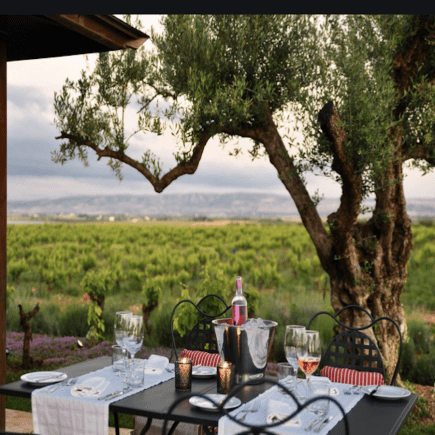
4 of the Best Moroccan Winery’s and Vineyards?
Chateau Roslane in Meknes’ Foothills of the Middle Atlas
Despite humble beginnings immediately after independence with the purchase by founder Brahim Zniber of the Domaine Ait Harzallah in the foothills of the Middle Atlas, Celliers de Meknes, a brand created in 1964, has gone from strength to strength and is today one of the best-known wine producers in Morocco. It forms part of a large agri-business, Diana Holdings, which is involved in fruit growing, oil production, chicken-rearing, and other activities. The company holds Morocco’s only Appelation d’Origine Contrôlée (AOC) was created, Côteaux de l’Atlas 1er cru, created in 2001 and the first estate with a Château name, , is situated within the AOC. The wines with the geographical distinction Appellation d’Origine Garantie (AOG) are l’AOG Guerrouane, l’AOG Beni M’Tir, l’AOG Berkane.
Château Roslane comprises over 700 hectares (1730 acres) of vines, gardens, fountains and a boutique hotel with restaurants and a spa. It is possible to combine a tasting with a meal in the restaurant where French cuisine showcases local produce or an overnight stay in a stunning setting.
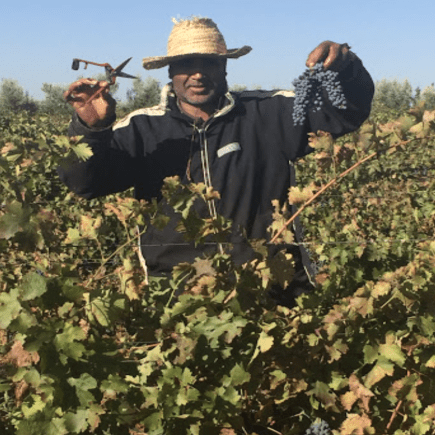
Domaine de la Zouina is in the Heart of Meknes region and home to the Volubilia and Epicuria Labels
Domaine de la Zouina, also in the Meknes area, is the home of the Volubilia and Epicuria labels as well as a range of olive oils. Older than Celliers de Meknes, the vineyard was established in 1930 during the French Protectorate period and is considerably smaller, with 85 hectares (210 acres) of vines and 15 hectares (37 acres) of olives. In this area, the olive harvest is conducted in a time-honored way, by thrashing the trees so the olives fall on sheets spread on the ground beneath them. A visit towards the end of the year offers a chance to witness this tradition. Despite being a relatively small vineyard, from its position in the Middle Atlas foothills, 800m (2625 ft) above sea level, Domaine Zouina produces a full range of white, rosé, gris and red wine under the Volubilia label as well as an award-winning white Chardonnay and two reds (a Syrah and a Cabernet) under the Epicuria label.
Domaine Zouina offers a range of visits and tasting options. After a tour of the grounds and a presentation of the production methods for wines and olive oils, it is possible to taste the wines with a selection of cheeses; with a range of chocolates, or as part of a lunch menu paired with six wines.
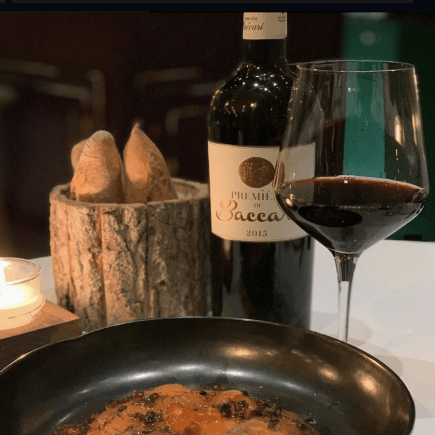
Domaine Baccari in the Meknes region and the First to Present a Vintage
Also in the lower reaches of the Middle Atlas, situated at an altitude of 650m, family-run Domaine de Baccari is a much newer producer. The first Domaine vintage was presented in 2013 from vines grown in fine, red clay with a soft limestone undersoil. To encourage biodiversity, cereals, almond trees and olive trees are also grown on this property. The grapes favored here are Syrah, Cabernet Sauvignon, and Cabernet Franc for red wines and Cinsault and Grenache for rosé. The Prèmiere de Baccari range includes a red (Cabernet Franc and Syrah) and a rosé. Reds are also produced under the Ballade de Baccari (produced only in 2014) and the Domaine de Baccari labels. A white wine, Blanc de Baccari, is made using exclusively Vermentino grapes. The range and quality of the wine is assured via a collaboration between the Domaine owners and Derenoncourt Consultants, French consultants working with a number of French and international producers. This represents a more modern, market-driven approach to viticulture in Morocco.
It is not possible to book at a tasting at the Domaine, but Baccari wines feature on wine lists across Morocco and Europe. The 2018 vintage of the Prèmiere de Baccari rosé has been particularly well-received, winning a gold medal in the 2019 UK Sommelier Awards and a silver medal in the Mondial du Rosé contest. Best enjoyed as an aperitif on a sunny terrace, or with grilled white fish!
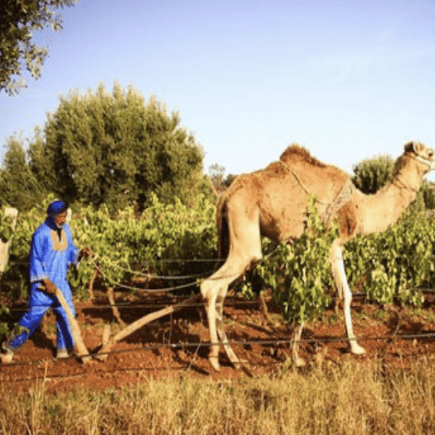
French, Vintner Charles Mélia’s Val d’Argan Inland from the Atlantic Coast in Essaouira
Morocco’s most southerly vineyard, Val d’Argan is based 23km (14 miles) inland from Essaouira, making it an easy day trip from the coast or combinable with a visit to the Had Dra weekly market, La Fromagerie al fresco restaurant and goat’s cheese or one of the many argan oil cooperatives in the region. It is a drive of around 2 hours from Marrakech. Vintner Charles Mélia has a long history of wine-making in France and a long-standing connection with North Africa, as his ancestors were among the French living in Algeria during the colonial period. His French vineyard is Font du Loup in the world-famous Châteauneuf du Pape area of the Rhone Valley. Twenty years ago, Mélia decided to bring his expertise to Essaouira, where summer temperatures can reach 40˚C (104˚F). Four years of preparing the ground, digging wells, planting the vines and building the cellar, plus a great deal of determination later, and the Val d’Argan vineyard was born. Constantly innovating to develop new labels, the vineyard produces four ranges encompassing red, white, rosé and gris wines from 13 different grape varieties of the Rhone Valley.
From a humble 5 hectares (12 acres), 50 hectares (124 acres) are now cultivated at Val d’Argan. Following an informative tour of the production area and cellar, wine tastings and a lunch menu with wine pairing are served in the Panorama Restaurant, overlooking the vineyard and framed with bougainvillea flowers. It is also possible to stay in the vineyard in a number of simple rooms surrounding an outdoor pool.
Whether your vacation in Morocco includes a winery tour and tasting or not, you will be able to sample a wide range of Moroccan wines during your trip. Licensed restaurants and hotel bars will offer a selection of local wines and your encounter with Moroccan wines will open new horizons in your wine-tasting experience.
For more information about a Morocco Private Tour to discover Moroccan wines and vineyards.

